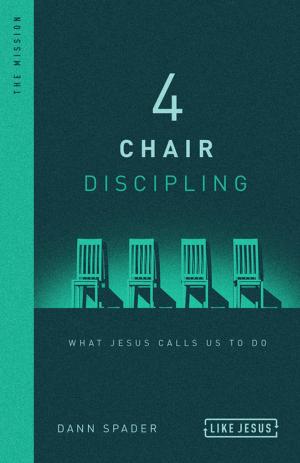| Author: | S. Franklin Logsdon | ISBN: | 9780802488077 |
| Publisher: | Moody Publishers | Publication: | April 19, 2013 |
| Imprint: | Moody Publishers | Language: | English |
| Author: | S. Franklin Logsdon |
| ISBN: | 9780802488077 |
| Publisher: | Moody Publishers |
| Publication: | April 19, 2013 |
| Imprint: | Moody Publishers |
| Language: | English |
Years ago a large painting of the cruxifixion was lent to a Midwestern city for exhibition during the Easter season. Space in a department store was set aside for the exquisite work which finally was recessed in yards and yards of rich, dark blue velvet. Approximately a hundred chairs were placed at a distance from the picture for the public to view it during business hours. You could step inside that enclosed space at any hour of the day and find people sitting and standing in absolute silence as they gazed at the scene before them. The awe and worshipful reverence of the spectators can be described best by saying they could be felt.
Remembrance of that place and picture can be relived in the content of Lingering at Calvary. How could the author forbear to do anything else than employ fully his gift of words in applying one brushful after another to the Calvary scene! He wants to stop readers who live much of their lives in this noncontemplative age of rush, pleasure, and ungodliness—stop them, make them sit or stand for a time in the absolute, tearful silence of sheer gratitude.
Years ago a large painting of the cruxifixion was lent to a Midwestern city for exhibition during the Easter season. Space in a department store was set aside for the exquisite work which finally was recessed in yards and yards of rich, dark blue velvet. Approximately a hundred chairs were placed at a distance from the picture for the public to view it during business hours. You could step inside that enclosed space at any hour of the day and find people sitting and standing in absolute silence as they gazed at the scene before them. The awe and worshipful reverence of the spectators can be described best by saying they could be felt.
Remembrance of that place and picture can be relived in the content of Lingering at Calvary. How could the author forbear to do anything else than employ fully his gift of words in applying one brushful after another to the Calvary scene! He wants to stop readers who live much of their lives in this noncontemplative age of rush, pleasure, and ungodliness—stop them, make them sit or stand for a time in the absolute, tearful silence of sheer gratitude.















